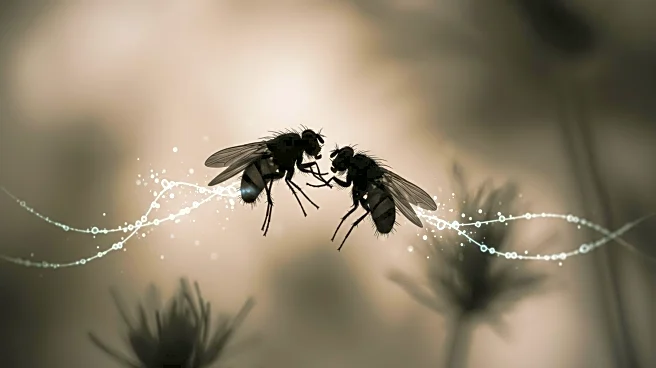What's Happening?
Researchers in Japan have successfully transplanted a unique courtship behavior from one species of fruit fly, Drosophila subobscura, to another, D. melanogaster, by altering gene expression in the brain. The study, led by Dr. Ryoya Tanaka and colleagues, involved manipulating insulin-producing brain cells to induce the regurgitation of food as a 'nuptial gift' during courtship, a behavior typically absent in D. melanogaster. This breakthrough demonstrates how small genetic changes can repurpose existing brain circuits for new social behaviors, providing insights into the genetic basis of social interactions and evolutionary processes.
Why It's Important?
This research offers significant insights into the mechanisms of evolution and the development of social behaviors. By demonstrating that existing neural circuits can be repurposed through genetic modifications, the study highlights the potential for understanding complex social behaviors in other species, including humans. The findings could have implications for evolutionary biology, genetics, and neuroscience, offering a model for studying how behaviors evolve and diversify. Additionally, the ability to transfer behaviors between species using genetic tools showcases the precision and potential of modern genetic engineering techniques.
Beyond the Headlines
The study raises ethical considerations regarding the manipulation of genetic material to alter behaviors, which could have broader implications for genetic research and its applications. It also prompts discussions about the potential for similar techniques to be used in other species, including mammals, and the long-term effects of such interventions. The research underscores the importance of responsible scientific practices and the need for ethical guidelines in genetic engineering.









